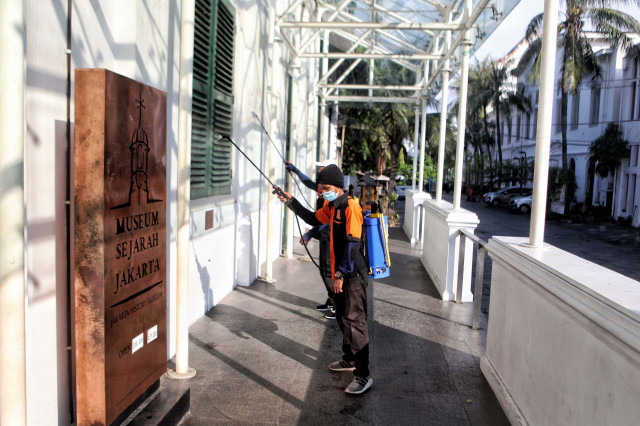Popular Reads
Top Results
Can't find what you're looking for?
View all search resultsPopular Reads
Top Results
Can't find what you're looking for?
View all search resultsWasted time on lockdown
A second wave of infections is imminent if the relaxation only breeds complacency or the fallacy that we have moved closer to beating the pandemic.
Change text size
Gift Premium Articles
to Anyone
B
y this time, it should be clear to the government that the country is not ready for an easing of the large-scale social restrictions (PSBB), let alone to embrace the “new normal”, which requires strict compliance with health protocols on the part of society to contain the spread of COVID-19.
As evident in the first week of transition in Jakarta and the euphoric reception of the gradual relaxation elsewhere in the country, the risks of virus transmission today remain high. The traffic congestion that followed the reopening of workplaces in the capital city and in the Puncak recreational site in Bogor, West Java, for example, does not bode well for efforts to curb the outbreak.
A second wave of infections is imminent if the relaxation only breeds complacency or the fallacy that we have moved closer to beating the pandemic.
In fact, when we were gearing up to reopen the economy, albeit under stringent health protocols, the World Health Organization sent a reminder, if not a warning. In its report last week the world body showed why Indonesia was not ready for the new normal.
It said the new normal required a country to take “non-negotiable measures”, such as conducting at least one polymerase chain reaction (PCR) test per 1,000 people per week in transmission areas with results provided in 24-48 hours.
Indonesia has so far only performed PCR tests on 321,225 people and rapid tests on 7,965 people, which is far below the standard. There has been insufficient contact-tracing and quarantine of suspect cases as the WHO also demands.
The WHO has also set the bar high for a country wishing to ease restrictions, such as at least a 50 percent decline in infections over a three-week period from the latest peak and continuous decline in the observed incidence of confirmed and probable cases. Only Yogyakarta has met the standard among other densely populated provinces across Java.
The country posted a record high number of cases with 39,294 and 2,198 deaths as of Monday. The daily increase stood at 900 or more every day.
All of this means that the country has spent three months under partial lockdown to return to a situation that is no better than it was three months ago.
A recent survey revealed that some regional heads have gained popularity as a result of their responses to this public health emergency but in fact such “achievements” relate to nothing more than their political ambitions in the future. Their popularity will certainly diminish if more people fall ill and die from the coronavirus.
Indonesia is currently in a difficult position in which the ailing economic may no longer tolerate another lockdown. But to return to the streets, offices and schools, we are faced with a grim future in which we are not well protected by the government, which is apparent in its failure to meet the WHO requirements.
The experience of other countries, where relaxation has resulted in a spike in infections, are lessons Indonesia needs to study to ensure the restrictions pay off.










